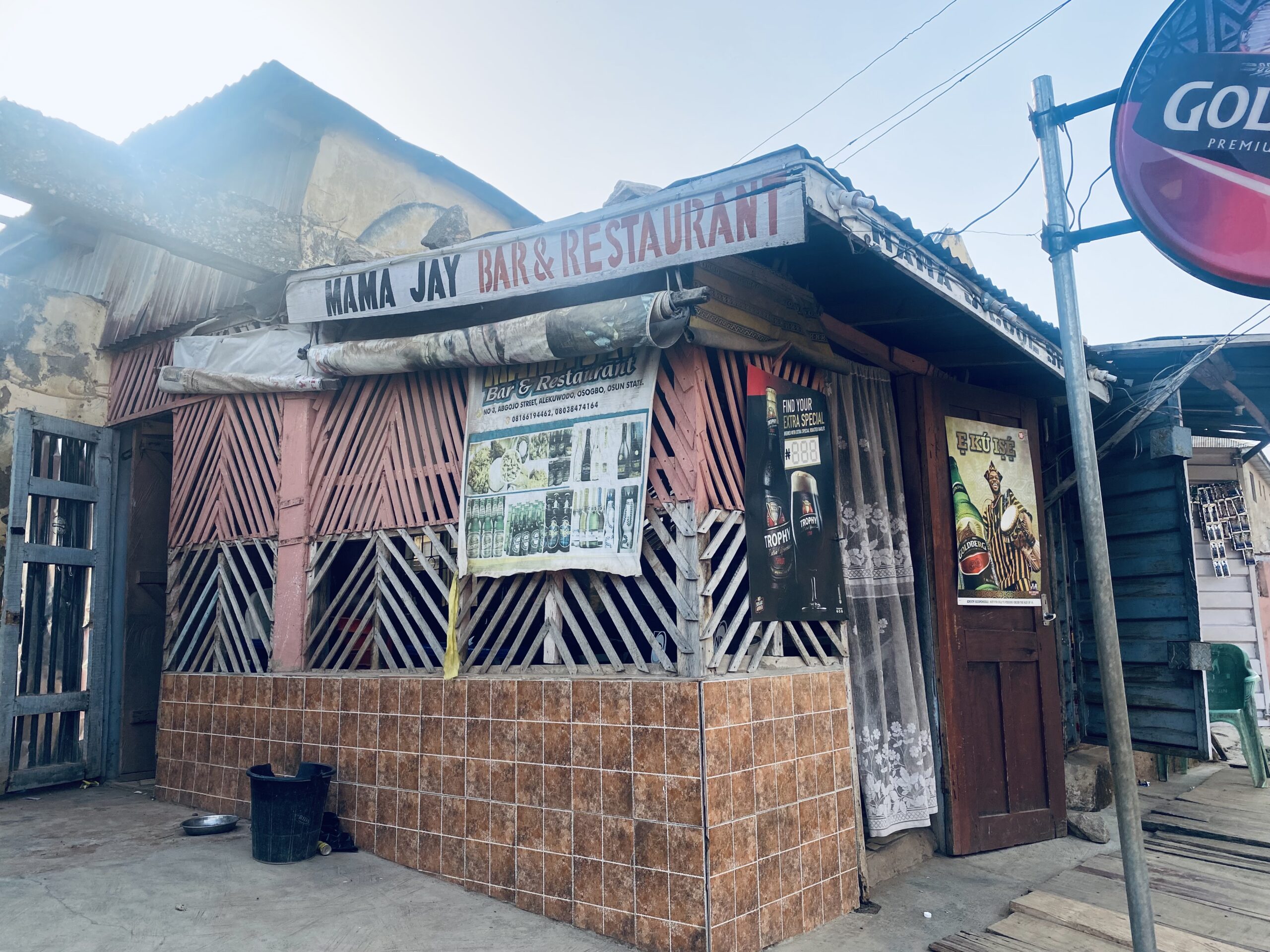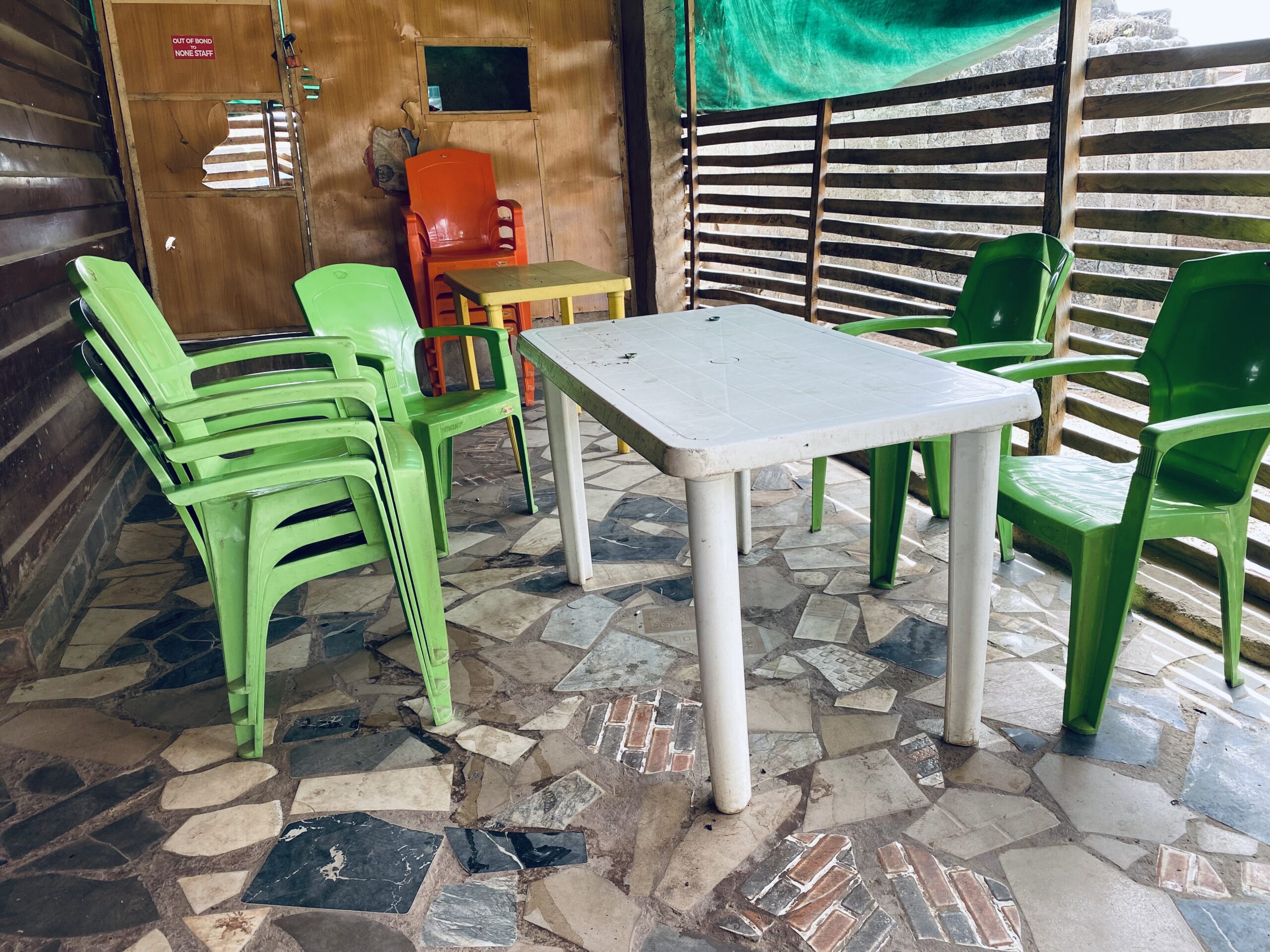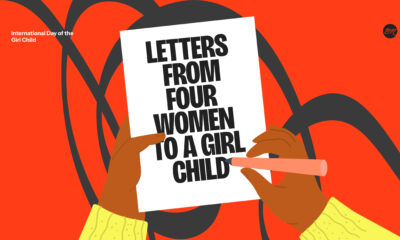Features
During Ramadan, Local Bar Owners Grapple with Low Sales
Sellers are optimistic about a return to normal business.

Photo by Ahmad Adedimeji Amobi
The time is about a few minutes to 10 p.m. As the multi-coloured light at the entrance of the bar beams above Mama Jay, she angrily fumbles the padlock of her bar. She struggles to fit the key into the keyhole. It’s not that the key does not fit or she couldn’t see clearly; she’s furious about her dwindling sales and the early closing time. This has been the norm since the 10th of March when Muslims began the annual Ramadan, a practice of abstaining from eating and drinking from morning till dawn. Prior to Ramadan, Mama Jay’s bar and restaurant buzzed with loud music and the clinking of numerous alcohol bottles as customers streamed in. The day at the bar starts at 10 p.m. when customers trickle in twos and ones, ordering bottles of alcohol and drinking late into midnight or beyond.
But it’s not just the early closing time that angers Mama Jay, it’s how the holy month of Ramadan has led to a significant reduction in her customers and sales. “They’ve stopped coming since Ramadan started. Although Christians have also just finished their fasting, it wasn’t as bad as this. It seems like the majority of our customers, the ‘onifaaji’, are now Muslims,” she says. Before Ramadan, Mama Jay made about N30,000 daily, but her daily earnings now fluctuate between N10,000 and N15,000.
In Nigeria, Muslims account for more than 50% of the total population and observe Ramadan as the fourth pillar of Islam with great devotion. When Ramadan draws to a close, many bar owners find themselves caught at the crossroads of faith and business. The holy month has brought significant changes to their businesses, with dwindling sales and a noticeable absence of regular customers. Every year, in local and urban areas, Nigerians spend billions of Naira on alcohol, but consumption of alcohol is prohibited for Muslims during and outside Ramadan. However, some Muslims effectively only abstain during Ramadan, like Alhaji Sikiru Adeyemi.
Alhaji Sikiru used to spend about N2,000 on alcohol before Ramadan, consuming two to three bottles of alcohol a night and even buying some bottles for his friends. However, since he started fasting, he’s been making a conscious effort to avoid his regular bar to resist temptation.
“As a Muslim, anyone who goes near a bar now is akin to inviting the devil. It’s better to stay away. Once you approach the bar, you’ve wasted all your efforts,” Sikiru says. When I mentioned that I was searching for a bar in the area, he gestured towards a green-painted house with a white curtain covering the entrance, adorned with alcohol labels. As I was about to leave, he asked, “You’re not fasting?” That was when I realised he was a Muslim.
For Sikiru, Ramadan is a time for introspection and making a conscious effort to resist temptation, although the sights and sounds from the bar sometimes tempt him. “At least for one month, you should be able to control yourself. If you can’t do that, then what’s the point? You should be able to dedicate this month to God. I’m praying to God to remove drinking from my life,” he explains. However, he plans to return on the night of the Eid al-Fitr festival.

Empty chairs inside Noble’s bar. Photo by Ahmad Adedimeji Amobi
Like Mama Jay, Noble‘s bar also suffers from the impact on sales. Being a Muslim himself and a consumer of alcohol, he has been making a conscious effort to abstain, but his business takes the brunt of it. While bars generally open by 12 noon and close late into the night, Noble used to keep his bar open from noon till midnight, serving customers and filling his fridge with a variety of alcohol. Ramadan has now forced him to close by 8 or 9 p.m., with his fridge stocked with bottles of water, and only serving about three customers a day.
While explaining the decline in his patronage, Noble says, “It’s not that the majority of customers are Muslims, but beer parlours are like family houses. As a Christian, when your Muslim friend isn’t there, or when your Muslim friend isn’t sharing a drink with you, it just doesn’t feel right.” He used to make about N30,000 to N40,000 daily, but since the beginning of Ramadan, he hardly makes N4,000 in a day.
“Ramadan empties the bar, and making sales becomes incredibly difficult. There were days, around the 15th day of Ramadan, when I didn’t see a single person walk into my bar,” he says. Mama Jay mentions that some of her Muslim customers still come at night after breaking their fast to “catch a whiff of alcohol or have a drag of a cigar. I can’t wait for Ramadan to end.”
As Ramadan approaches its final days, both Mama Jay and Noble are optimistic about a return to normal business.






















